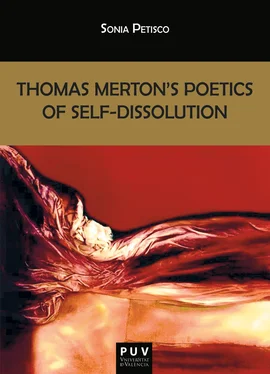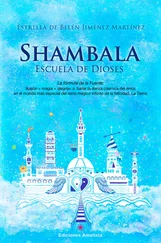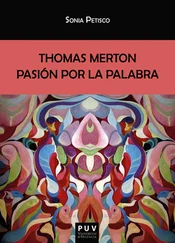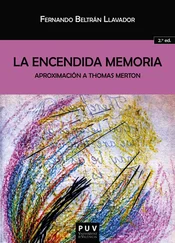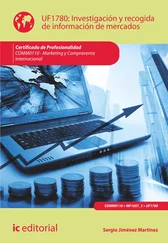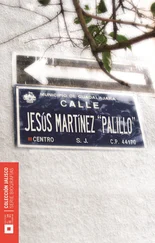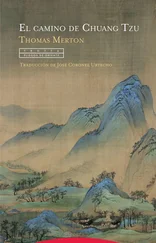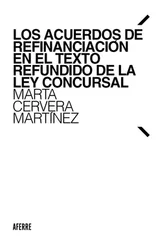Sonia Petisco Martínez - Thomas Merton's Poetics of Self-Dissolution
Здесь есть возможность читать онлайн «Sonia Petisco Martínez - Thomas Merton's Poetics of Self-Dissolution» — ознакомительный отрывок электронной книги совершенно бесплатно, а после прочтения отрывка купить полную версию. В некоторых случаях можно слушать аудио, скачать через торрент в формате fb2 и присутствует краткое содержание. Жанр: unrecognised, на английском языке. Описание произведения, (предисловие) а так же отзывы посетителей доступны на портале библиотеки ЛибКат.
- Название:Thomas Merton's Poetics of Self-Dissolution
- Автор:
- Жанр:
- Год:неизвестен
- ISBN:нет данных
- Рейтинг книги:5 / 5. Голосов: 1
-
Избранное:Добавить в избранное
- Отзывы:
-
Ваша оценка:
- 100
- 1
- 2
- 3
- 4
- 5
Thomas Merton's Poetics of Self-Dissolution: краткое содержание, описание и аннотация
Предлагаем к чтению аннотацию, описание, краткое содержание или предисловие (зависит от того, что написал сам автор книги «Thomas Merton's Poetics of Self-Dissolution»). Если вы не нашли необходимую информацию о книге — напишите в комментариях, мы постараемся отыскать её.
Thomas Merton's Poetics of Self-Dissolution — читать онлайн ознакомительный отрывок
Ниже представлен текст книги, разбитый по страницам. Система сохранения места последней прочитанной страницы, позволяет с удобством читать онлайн бесплатно книгу «Thomas Merton's Poetics of Self-Dissolution», без необходимости каждый раз заново искать на чём Вы остановились. Поставьте закладку, и сможете в любой момент перейти на страницу, на которой закончили чтение.
Интервал:
Закладка:
Introduction
What is man, that you make so much of him
And that you set your heart on him,
Visit him every morning
And test him every moment?
Job 7:17
Some contemporary thinkers have expressed their uneasiness about the absolute absence of new ideas to change the world. Even if there are dispersed tendencies and incipient movements, we still find ourselves trapped within the current complexity and do not know how to respond when confronted with it.
One of the main merits of Thomas Merton’s literary project is that it can greatly contribute to untie the knots and dilemmas of personal and social conflicts by liberating us from the dream of fictitious individualism and, therefore, untapping possibilities for an authentic communal experience rooted in “the hidden ground of love.” 1The relevance of his message has been recently underlined by Pope Francis in his address to the Congress of the United States, when he mentions Thomas Merton, together with three other American – Abraham Lincoln, Dorothy Day and Martin Luther King –, and refers to him as “a man of dialogue, a promoter of peace between peoples and religions.” 2
This book aims to bring together a series of critical essays on Thomas Merton’s poetry, which clearly shows how the quest for self–detachment and mystical communion with the divine is indeed at the center of Merton’s spirituality and political concerns. Together with a chronology of Merton’s life and works and two interviews with Dr George Kilcourse and Paul Quenon, ocso, the volume contains some of the most relevant papers I have delivered in different national and international conferences both in Spain and in the UK over more than a decade. They have all been published in specialized journals relating to the fields of Religious Studies, Comparative Literature, and Translation and they can be considered as vivid testimonies to Merton’s perception of human egocentrism as the main root of all international confrontations and social violence:
We live in an age of bad dreams, in which the scientist and engineer possess the power to give external form to the phantasms of man’s unconscious. The bright weapons that sing in the atmosphere, ready to pulverize the cities of the world, are the dreams of giants without a center […] One is permitted to wish their dreams had been less sordid. 3
My tenet is that the entire body of Thomas Merton’s poetry can be thought of as a poetics of dissolution: the dissolution of the old corrupt world full of pointless slaughters in favour of an apocalyptic vision of a new world; abstract categorizations of the supernatural giving way to a more direct, humanized and intimate experience of the sacred at home in the world; and above all, a fading away of the false self in the light of the true self in Christ: “O flaming Heart/unseen and unimagined in this wilderness,/You, You alone are real, and here I’ve found You.” Indeed, Merton has been regarded as a prophet and poet of transformation, and his transformative metaphors may help us celebrate the best and most universal of our human civilization’s achievements by bringing forth the most regenerative radiance from deep inside the heart of contemplation.
Through the eight chapters in which this book has been divided, Merton invites us to live a contemplative life. Such contemplation is “the highest expression of man’s intellectual and spiritual life,” 4“a listening in silence, an expectancy,” 5“a simple intuition of the truth” (simplex intuitus veritatis) , 6and above all the capacity to see beyond the idols and masks of the ego into the “mystery in which God reveals Himself to us at the very center of our own most intimate self.” 7As he beautifully wrote:
At the center of our being is a point of pure truth, a point or spark which belongs entirely to God, which is never at our disposal, from which God disposes of our lies, which is inaccessible to the fantasies of our own mind or the brutalities of our own will. This little point of nothingness and of absolute poverty is the pure glory of God in us. It is so to speak His name written in us, as our poverty, as our indigence, as our dependence, as our sonship. 8
Greatly influenced in his mysticism by the apophatic theology found in such people as Gregory of Nyssa, Pseudo–Dionysius, Meister Eckhart, the anonymous author of The Cloud of Unknowing , or John of the Cross, Merton claimed that God is me and that I am God, and that no word or image can contain God or me. In other words, God is neither a “what” nor a “thing,” it is not a being among other beings, but a pure “Who” or a pure “I” that cannot be apprehended by conceptualization but must be experienced directly in the darkness where God is “everything and nothing,” and where “I” am “everybody” and “nobody.” Throughout Merton’s poetic corpus, we are witness to his own experience of the dark night of the soul, characterized by strong inner contradictions:
This afternoon, let me
Be a sad person. Am I not
Permitted (like other men)
To be sick of myself? [… ]
Do not forbid me (once again) to be
Angry, bitter, disillusioned,
Wishing I could die. 9
If there is something we can learn from Merton it is that I am not the one I think I am. On the contrary, he helps us understand that – like the prophet Jonas – I live in the belly of a paradox, that there is not only “one” but at least “two” within myself, and that my real person carries an eternal war between what I am supposed to be and what I really am. This is a perpetual agony, a war without end which – in the case of Merton – was manifested in a ferocious struggle between his religious call to the contemplative life and his unquestionable vocation to become a writer. Nevertheless, he did not hide this contradiction but learnt to breathe through his wound, accepting his destiny as one of the greatest poet–prophets of the twentieth century, whose word fiercely denounces all the horrors of human history but also sets up a new beginning through art and symbolic imagination. 10As he himself recognizes in one of his literary essays:
All really valid poetry (poetry that is fully alive and asserts its reality by its power to generate imaginative life) is a kind of recovery of paradise [… ] Here, the world gets another chance. Here man, here the reader discovers himself getting another start in life, in hope, in imagination, and why? Hard to say, but probably because the language itself is getting another chance, through the innocence, the teaching, the good faith, the honest senses of the workman poet. 11
Moved by a deep poetic inspiration, Merton creates a new geography, the geography of Lograire, 12the geography of the Living Word which puts into question all the false political, scientific and technological discourses which have contributed to create the collective fiction we are living in. And he himself becomes “his own geography [… ] his own wild bird, with God in the center/his own wide field which nobody owns,/his own pattern, surrounding the Spirit/by which he is himself surrounded:/for the free man’s road has neither beginning nor end.” 13Let us accompany him in this endless path towards real communion with the divine beyond the limits of our own constrained subjectivities. Let us be awakened to the paradise consciousness, that child mind which is “the only mind worth having.” 14
We live in the things we love and the things we expect. I do hope that the compassionate but somehow incisive message of Thomas Merton, the silent rumour of his poetic voice, can be heard and expanded worldwide during his Centenary Year 15so that we can get rid of “the overlying layer of duplicity that is not ourselves” 16and recover our native nakedness, that point of nothingness where we become the Incarnate Word, the dance of the Lord in emptiness.
Читать дальшеИнтервал:
Закладка:
Похожие книги на «Thomas Merton's Poetics of Self-Dissolution»
Представляем Вашему вниманию похожие книги на «Thomas Merton's Poetics of Self-Dissolution» списком для выбора. Мы отобрали схожую по названию и смыслу литературу в надежде предоставить читателям больше вариантов отыскать новые, интересные, ещё непрочитанные произведения.
Обсуждение, отзывы о книге «Thomas Merton's Poetics of Self-Dissolution» и просто собственные мнения читателей. Оставьте ваши комментарии, напишите, что Вы думаете о произведении, его смысле или главных героях. Укажите что конкретно понравилось, а что нет, и почему Вы так считаете.
